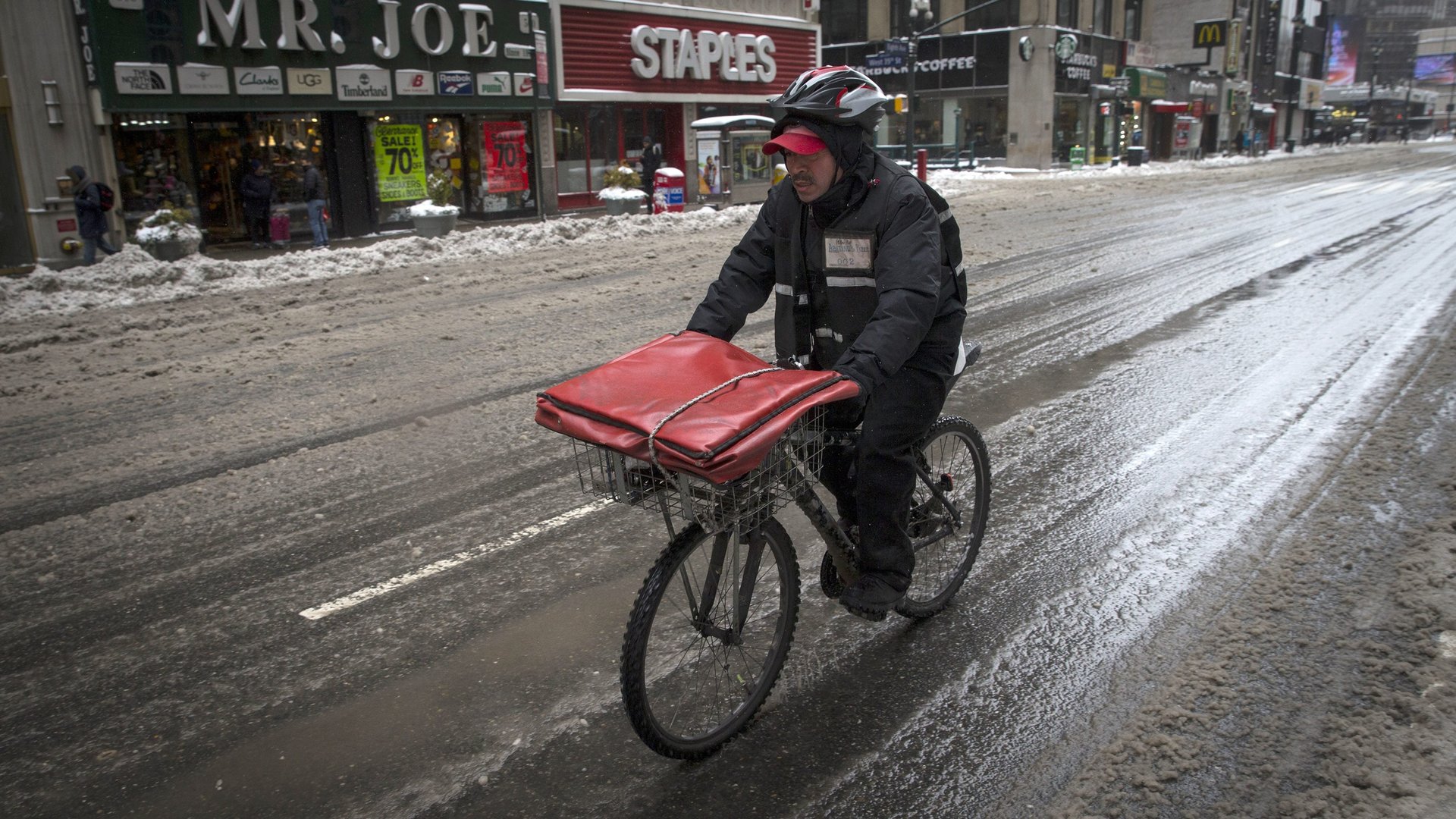Grubhub’s purchase of Yelp’s Eat24 may make it the only place to order restaurant delivery
Grubhub is buying online food ordering platform Eat24 from Yelp for $287.5 million in cash, the companies said today.


Grubhub is buying online food ordering platform Eat24 from Yelp for $287.5 million in cash, the companies said today.
The deal is a clear win for Yelp, which paid less than half that price, $134 million in cash and stock, to acquire Eat24 in February 2015. It also solidifies Seamless-parent Grubhub’s position as the largest online takeout and delivery platform in the US at a time when venture capitalists have put billions of dollars behind competing startups in the food delivery business.
Grubhub CEO Matt Maloney told Quartz the deal is a “win-win.” “Strategically it just makes a ton of sense,” he said in an interview. “We get access to Yelp’s incredible transaction platform to drive more diners, we’re able to consolidate scale on the order side which increases our efficiency… and we augment our restaurant base.”
Two years ago the threat from Silicon Valley rattled Grubhub investors and sent its stock into a tailspin. Since then, the company has staged a remarkable comeback. It pushed beyond transmitting online orders from customers to restaurants and invested in its own delivery operation, which it said now accounts for 20% of gross food sales. Its revenue, profit, active users, and daily orders are all growing steadily on a year-over-year basis.
Ahead of second-quarter earnings today, Grubhub’s stock closed at an all-time high of $48.31. The stock initially rose, then fell 6% on its quarterly results and news of the Eat24 acquisition in after-hours trading. Yelp surged 17% after-hours on the news.
“Two years ago there was an incredible amount of fear because of the hype around our industry,” Maloney told Quartz. “Instead of freaking out we just put our heads down and worked harder to make sure that we were providing the best experience for the most restaurants. By doing that day in and day out for two years I think that we’ve proven that we have the staying power and we’re not afraid of any competition right now.”
Grubhub’s delivery dominance in the US is rivaled only by Domino’s, the ubiquitous pizza chain. As of last summer, Grubhub commanded a 23% slice of the digital ordering and delivery market compared to Domino’s 24%, according to research from Morgan Stanley. The two are hardly competitive with each other. Domino’s offerings are limited to pizza, pasta, and other quick Italian-style eats, while Grubhub has tens of thousands of local restaurants in its network. The same Morgan Stanley report pegged Eat24’s market share at 2%, on par with San Francisco-based delivery startups DoorDash and Postmates.
Together Eat24 and Grubhub will tap into a network of about 75,000 restaurants. That’s a roughly 80% boost for Eat24, which alone had roughly 40,000 restaurants on its platform under Yelp and a user base that is strongest in the West Coast and Miami. It’s also a big lift to Grubhub, which had more than 55,000 restaurants on its own. Their exact combined market share is unclear, but certainly large. “Oh, I don’t even know,” said Maloney, when asked.
Maloney and Yelp CEO Jeremey Stoppelman have known each other since their pre-IPO days (2012 for Yelp, 2014 for Grubhub), when they were both backed by venture-capital firm Benchmark. Maloney said a deal between the two has always been an “obvious opportunity” and that talks rekindled earlier this year.
Meanwhile, many of the food delivery apps that spooked Grubhub investors two years ago have since flamed out. Prepared meal services Sprig and Maple have both gone out of business this year, while Munchery has stiffed early backers and laid of staff in a bid for survival. Other food delivery companies have added surge pricing, enabling them to make more money by charging consumers higher fees during busy times. Meal-kit company Blue Apron, which went public on the New York Stock Exchange in June, has lost nearly 40% of its value, most recently falling to $6.22 from its IPO price of $10.